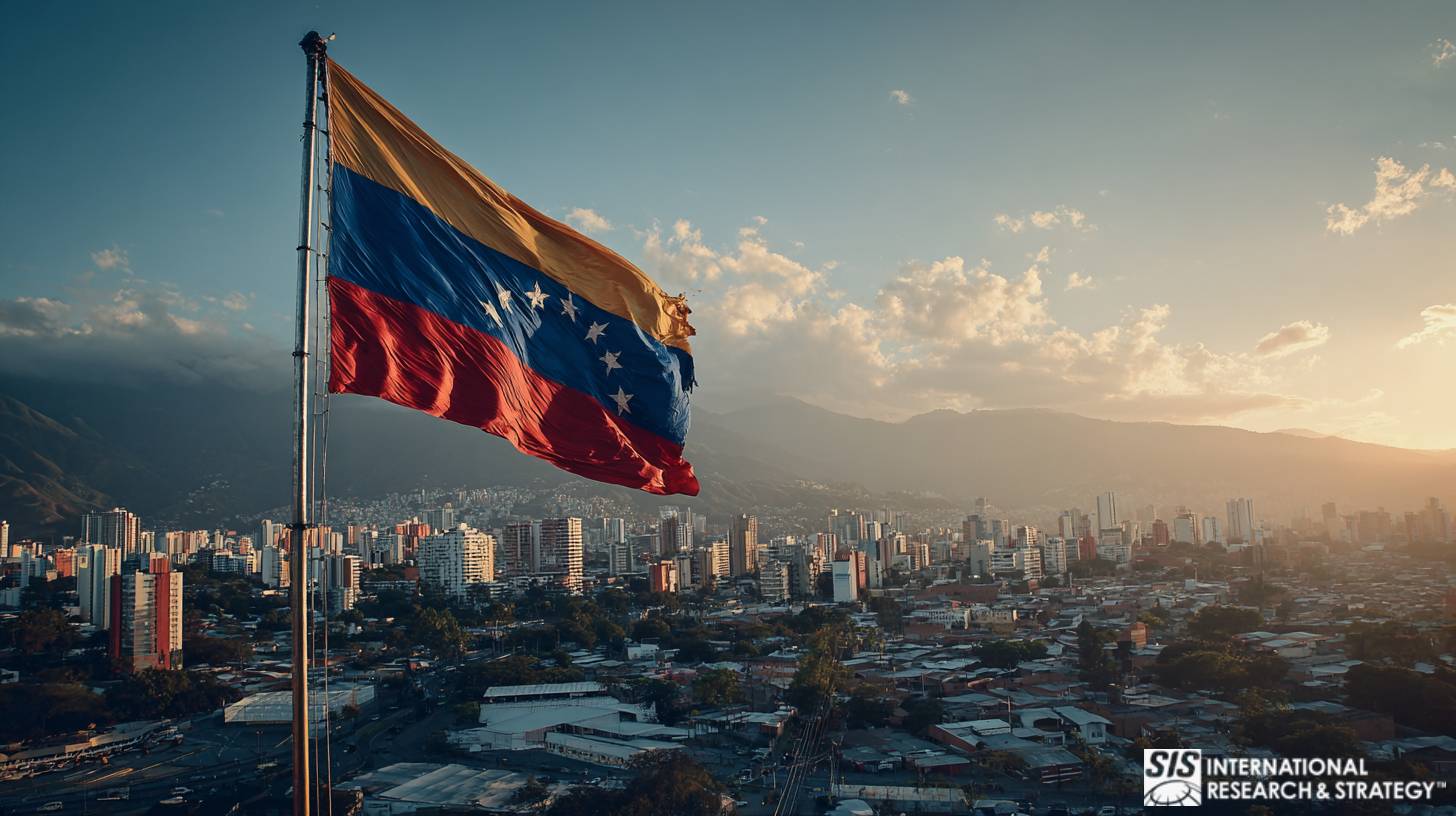การวิจัยตลาดในเวเนซุเอลา
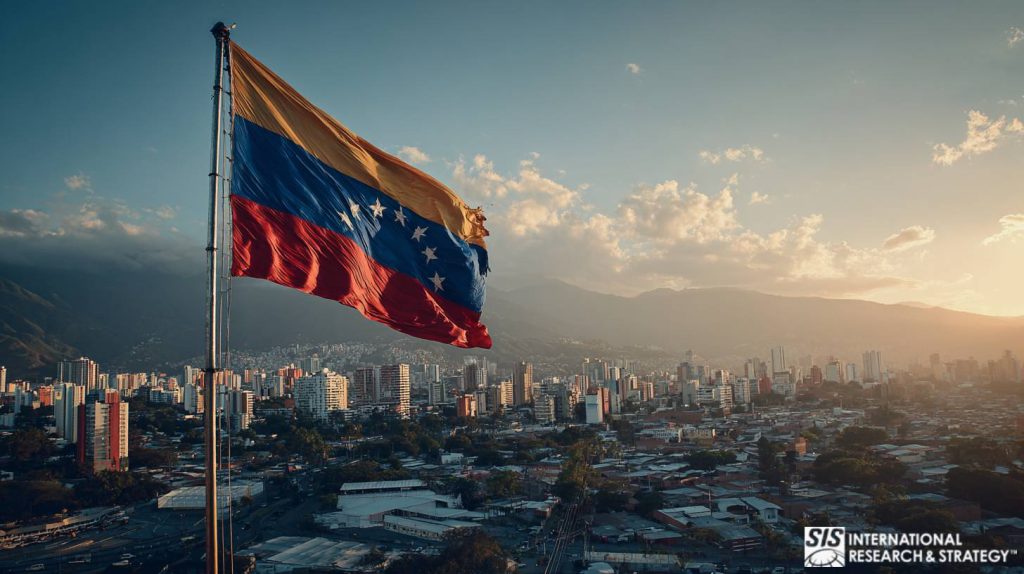
ผลพวงของชาเวซ
Since the death of charismatic United Socialist Party leader Hugo Chavez in 2013, Venezuela has struggled during the presidential tenure of his hand-picked successor, Nicolás Maduro. With a one-product economy based almost entirely on oil production, the financial fortunes and the quality of life for many in Venezuela have plummeted in direct relationship to world oil prices. Already in decline during Chavez’s waning years in office, under Maduro the decline has devolved into an outright collapse.
ปัจจุบันรัฐบาลไม่สามารถนำเข้าหรือจัดหาผลิตภัณฑ์ขั้นพื้นฐานได้ ผู้คนมารวมตัวกันต่อแถวยาวไม่สิ้นสุดเพื่อรอรับสิ่งของในบ้าน ยารักษาโรค และอาหาร เมื่อสถานการณ์ยังคงคลี่คลาย เหตุการณ์การประท้วง การปล้นสะดม และความรุนแรงก็กลายเป็นเรื่องธรรมดามากขึ้น มาดูโรโทษว่าการขาดแคลนเกิดจากการกักตุนและการลักลอบขนของเข้าเมือง แต่หลายๆ คนมองว่าการจัดการที่ผิดพลาดของรัฐบาลเป็นสาเหตุ อุตสาหกรรมระดับชาติก็ได้รับผลกระทบเช่นกัน และระดับการผลิตของพวกเขาก็ทรุดโทรมลง ในขณะเดียวกัน อันดับความน่าเชื่อถือของเวเนซุเอลายังอยู่ในแดนขยะ
Price controls are in effect to protect consumers from runaway inflation and currency has been shockingly devalued. Exports are shutting down, and companies continue to leave the country or close down. Inflation has risen into triple-digit territory – the highest in the world – and salaries are far from keeping pace. Crime is on the upswing in Caracas and to a greater degree in the interior of the country.
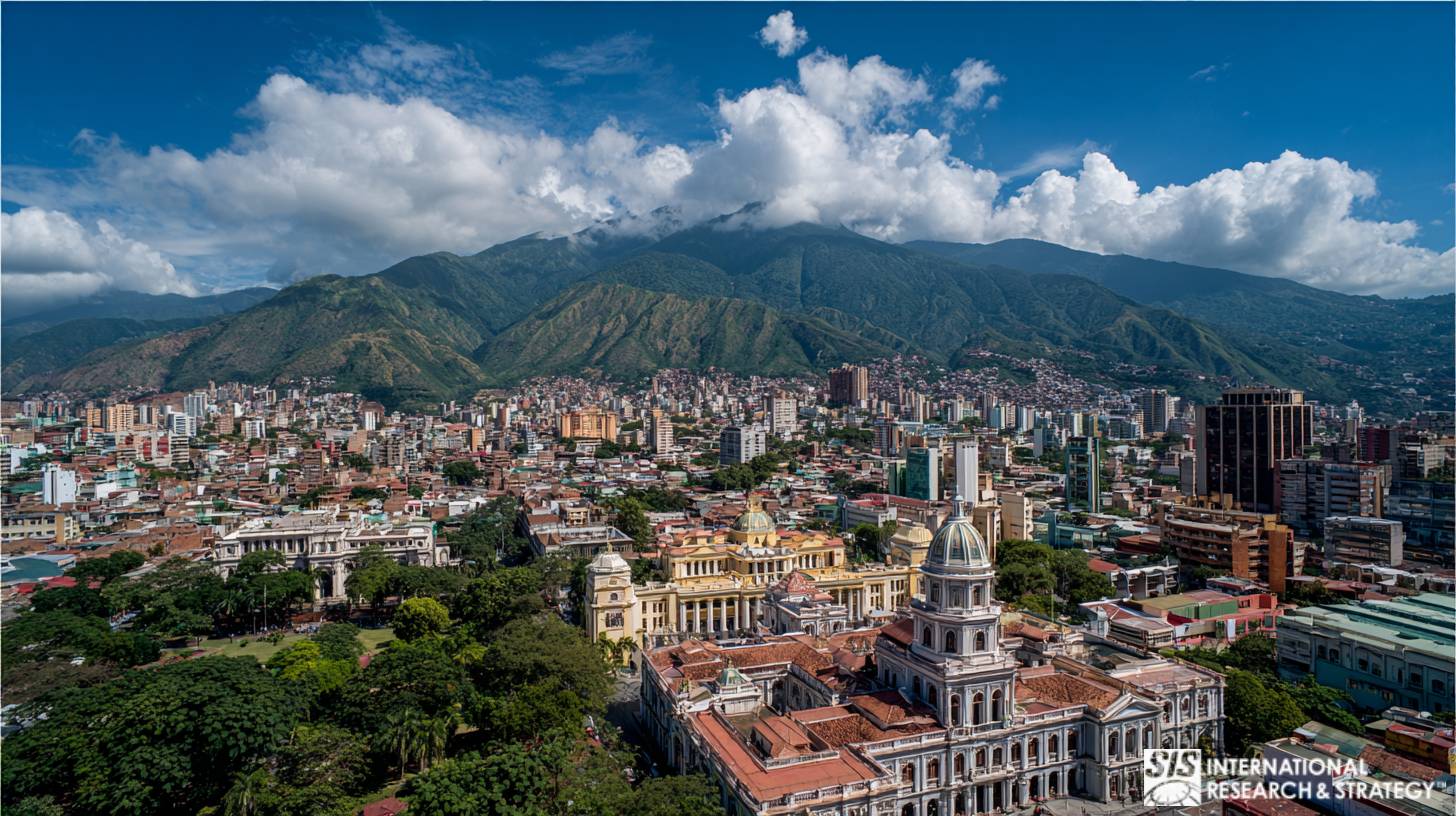
เป็นเรื่องยากที่จะจินตนาการว่าเมื่อหนึ่งทศวรรษก่อนหน้านี้ เวเนซุเอลาประสบกับความเจริญรุ่งเรืองของสินค้าโภคภัณฑ์ครั้งใหญ่ที่สุดครั้งหนึ่งในประวัติศาสตร์สมัยใหม่ โดยมีรายได้รวมจากน้ำมันประมาณเกือบหนึ่งครึ่งล้านล้านดอลลาร์ เทียบเท่ากับคูเวต แต่ผลที่ตามมา การจัดการทางเศรษฐกิจที่ผิดพลาดและราคาน้ำมันโลกที่ตกต่ำได้ทำให้ประเทศตกอยู่ภายใต้ความโกลาหลและแทบไม่มีความหวังว่าจะได้รับการบรรเทาในทันที ความไม่สงบในสังคมเกิดขึ้นอย่างกว้างขวาง และความรู้สึกที่เหนือกว่าที่ว่าเวเนซุเอลาได้มาถึงจุดแตกหักนั้นแพร่หลายไปทั่ว จนถึงขณะนี้ รัฐบาลสามารถป้องกันตนเองจากความวุ่นวายได้ แต่การสั่นคลอนอาจกำลังเกิดขึ้น มาดูโรจะเป็นผู้นำชาวิสต้าคนสุดท้ายหรือไม่? เวลาจะบอกเอง. ในระหว่างนี้ เขาใช้น้ำเสียงที่เผด็จการและเข้มงวดมากขึ้น
“ด้วยความหวาดกลัวว่าเหตุการณ์ความไม่สงบในที่สาธารณะจะทวีความรุนแรงขึ้นจนกลายเป็นเรื่องร้ายแรง รัฐบาลจึงได้จัดกำลังทหารเพื่อควบคุมคิวของนักช้อปที่ไม่พอใจในร้านค้าที่มีพื้นที่ว่างเพียงครึ่งเดียวของประเทศ และได้แนะนำระบบการปันส่วน โดยจำกัดผู้ซื้อไว้ที่ 2 วันต่อสัปดาห์ในร้านค้าที่รัฐบาลควบคุม เช่น บลูมเบิร์ก cynically put it, “Venezuela reduces lines by trimming shoppers, not shortages.”.1
โดยพื้นฐานแล้ว ภัยพิบัติเวเนซุเอลาที่กำลังเกิดขึ้นนั้นถูกมองว่าเป็นกรณีศึกษาเกี่ยวกับวิธีการ ไม่ เพื่อบริหารจัดการเศรษฐกิจในยุคทุนนิยมโลก มันเป็นโมเดลเศรษฐกิจที่ล้มเหลวอย่างไม่ต้องสงสัย ในปัจจุบัน เงินดอลลาร์มีค่ามากกว่าตลาดมืดมากกว่าตลาดแลกเปลี่ยนถึงร้อยเท่า เป็นไปได้ค่อนข้างมากที่ ณ จุดหนึ่ง เวเนซุเอลาจะต้องผิดนัดชำระหนี้ ด้วยน้ำมันที่น้อยกว่า $50 ต่อบาร์เรล ประเทศจึงสูญเสียเงินอย่างต่อเนื่อง คาดว่าพวกเขาจะสูญเสียทุนสำรอง $2B ทุกเดือน
ราคาน้ำมันที่สูงขึ้นจะช่วยแก้ปัญหาของเวเนซุเอลาได้หรือไม่?
World oil prices historically fluctuate. While they are presently at rock bottom, most industry prognosticators feel that prices will inevitably rise once again. Unfortunately for big oil-producing nations such as Venezuela, just when this might occur is uncertain. Certainly, a normalizing of oil prices would help to keep Venezuela solvent and operative. At $70-$80-a-barrel, it could sustain itself and feed its people. Concurrently, if the people do better, the Chavista government stands a far better chance of enduring.
ตามที่รายงานเมื่อเร็ว ๆ นี้โดย เสียงแห่งอเมริกา“เวเนซุเอลาเป็นหนึ่งในสมาชิกขององค์การประเทศผู้ส่งออกน้ำมันที่ได้รับผลกระทบหนักที่สุดจากราคาน้ำมันที่ตกต่ำ ความจำเป็นที่โอเปกจะต้องลดอุปทานเพื่อหนุนราคาล้มเหลวในการเปลี่ยนจุดยืนของซาอุดิอาระเบียและพันธมิตรในกลุ่มอ่าวโอเปก ซึ่งกำลังมุ่งเน้นไปที่การปกป้องส่วนแบ่งการตลาด”2 Sans ให้คำมั่นจากซาอุดีอาระเบีย โอเปก รัสเซีย และประเทศที่ร่ำรวยปิโตรเลียมอื่นๆ ในการควบคุมการผลิต แนวโน้มทางการเงินในทันทีสำหรับเวเนซุเอลานั้นดูน่ากลัว
Of course, other problems existed before the bottom fell out of the oil market. Even if and when oil prices rise, Venezuela will have to deal with its broken system, price controls, gas subsidies, rationing, and inadequate food supplies. Paying off creditors won’t help a hungry populace. An influx of cash also won’t restore political freedoms. Chávez and Maduro dealt with a lot of problems by throwing money at them. With the money gone, that’s no longer possible. At best, a new infusion of oil money might help them to kick the can down the road a bit further, but it’s no magic bullet.
เวเนซุเอลา: ประชาธิปไตยหรือไม่?
Despite all of the accusations leveled against it, the Chavista government of Venezuela built its legitimacy on fair electoral processes and relatively clean elections. Today, however, the playing field is uneven. The government controls all of the institutions and the people are unable to express their choices freely. ตาม สัตว์เดรัจฉานรายวัน“สภาแห่งชาติเวเนซุเอลาอนุมัติแล้ว ประธานาธิบดีนิโคลัส มาดูโร(คำขอล่าสุด) ให้ปกครองโดยกฤษฎีกาเป็นครั้งที่สองนับตั้งแต่เข้ารับตำแหน่งในปี 2556 คำตัดสินดังกล่าวให้อำนาจประธานาธิบดีขยายพิเศษนอกเหนืออำนาจบริหาร มาดูโรเรียกสิ่งนี้ว่าเป็นการผลักดันเพื่อต่อสู้กับลัทธิจักรวรรดินิยม”
สิ่งที่เหลืออยู่คือก จัดการ ประชาธิปไตย. ฝ่ายค้านของมาดูโรอาจเรียกว่าเป็นเผด็จการ เมื่อรัฐบาลควบคุมส่วนแบ่งสื่อขนาดใหญ่ พวกเขาจึงสามารถใช้สื่อเพื่อสร้างคะแนนเสียงได้ ขอให้พนักงานของรัฐเข้าร่วมการประท้วงสนับสนุนรัฐบาล ผู้สมัครฝ่ายค้านยังถูกห้ามไม่ให้ลงสมัครรับตำแหน่ง และทำให้กลุ่มสิทธิมนุษยชนต้องผิดหวัง มาดูโรต้องทนทุกข์ทรมานกับความทุกข์ยากเพิ่มเติม เพราะเขาขาดความสามารถพิเศษแบบที่อูโก ชาเวซครอบครองและใช้เพื่อผลประโยชน์อย่างมาก ความสง่างามประการหนึ่งสำหรับชาว Chavistas คือการที่ฝ่ายค้านไม่สามารถรวมเป็นหนึ่งและเอาชนะแนวโน้มการต่อสู้แบบประจัญบานของตนเองได้ พวกเขาอาจแพ้ในการเลือกตั้งรัฐสภาที่กำลังจะมาถึงเนื่องจากไม่สามารถรวมตัวกันได้
จัดอันดับสถาบันประชาธิปไตยของเวเนซุเอลา
Venezuela has a long history of crony interests exploiting situations for their own gain. Even Chavez was seen as channeling the hatred of older political factions to obtain power. The Venezuelan constitution has been rewritten numerous times for political expediency. The State Assembly was often used as a rubber stamp to enforce Chávez’s power. กลยุทธ์ที่น่าเกรงขามมักถูกใช้เพื่อปิดปากผู้นำฝ่ายค้าน เช่น ลีโอโปลโด โลเปซ ซึ่งปัจจุบันถูกจำคุกด้วยข้อกล่าวหาที่ทรัมป์อ้างว่าเขาสร้างแรงบันดาลใจให้เกิดการจลาจลและความรุนแรงต่อระบอบมาดูโร
การคอร์รัปชันครั้งใหญ่ปรากฏชัด และดูเหมือนว่ากองทัพจะมีความซับซ้อน โดยนายทหารที่รู้จักกันมานาน ดิโอสตาโด คาเวโล มีความใกล้ชิดกับมาดูโรมากจนหลายคนรู้สึกว่าเขากำลัง "ดำเนินรายการ" อย่างลับๆ ปัจจุบัน Cavelo กำลังถูกสอบสวนในข้อกล่าวหาว่ามีส่วนเกี่ยวข้องกับแก๊งค้ายาและการส่งโคเคนไปยังสหรัฐอเมริกา ต่างจากการแยกอำนาจที่เห็นได้ทั่วไปในหลายประเทศ ทุกคนเดินขบวนไปตามคำสั่งของฝ่ายบริหารในเวเนซุเอลา
Is Chavez Still A Hero to The Poor?
Though it has been some time now since the passing of Hugo Chavez, his legacy and legend still live in Venezuela. This is especially true among the nation’s poor and among Chavista leaders. “Since Chavez’s death after a battle with an undisclosed cancer in 2013, the government and the PSUV party have made great efforts to present him as a national hero and capitalize his legacy. President Nicolás Maduro mentions Chávez in almost every speech, urging people to follow his example.”4 It’s true that no one has benefitted quite as much from attaching himself to Chavez’s enduring popularity as Maduro. Since his Chavez-endorsed election, there have been chronic shortages, sporadic violence, inflation, and accusations of impropriety on many levels, but past association with Chavez allowed Maduro to cling to
power. However, when people can’t eat and have no money, their patience can begin to erode. Even Maduro is playing the “Chavez card” less and less, as it is a currency that no longer guarantees reverence or votes at election time. Many feel the true revolution died along with Chavez. Perhaps not even another compelling charismatic could revive it. From colorful murals on building exteriors to stories that still circulate among the faithful, Chavez image and his savior-status among the poor still survives, due to his personal magnetism, the work he did for the disadvantaged, and the way he stood up to and defied the establishment. The Oligopoly that he railed against did in fact exist, . It was a system that deeply entrenched the powers of a small group of the privileged elite. Today, Maduro can still blame Venezuela’s problems on these entitled few. It is this class-driven cleavage that makes governing extremely difficult. In truth, unless oil prices rebound and reverses the country’s economic fortunes, these lingering echoes of Chavista glory may fade forever.
ความสำคัญของการปฏิวัติโบลิเวีย
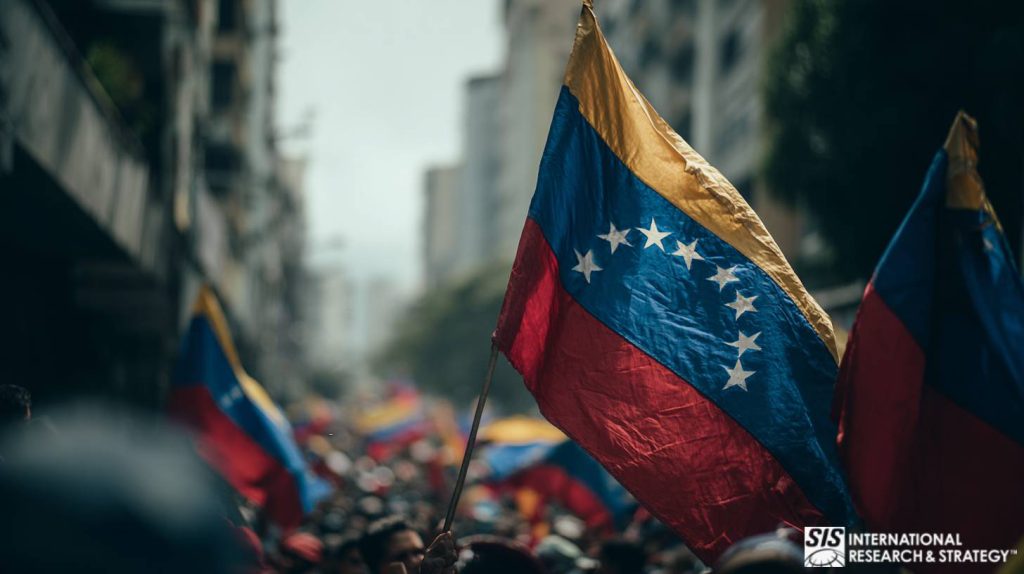
การปฏิวัติโบลิเวียส่งผลให้มีการแจกจ่ายความมั่งคั่งมหาศาลในปี 20ไทยศตวรรษอเมริกาใต้ นำไปสู่การเปลี่ยนแปลงอย่างสมบูรณ์ของเวเนซุเอลาในช่วง 16 ปีที่ผ่านมา ความเจริญรุ่งเรืองของน้ำมันทำให้ Hugo Chavez สามารถทุ่มเงินจำนวนมากในโครงการเพื่อสังคมที่มีน้ำใจ ปัจจุบันโปรแกรมเหล่านี้ส่วนใหญ่ล้มเหลว แม้จะมีข้อเท็จจริงนี้ คนยากจนยังคงสนับสนุนรัฐบาล Chavista โดยรู้สึกว่าสิ่งต่างๆ จะเลวร้ายยิ่งกว่านี้ภายใต้การปกครองที่เอนเอียงไปทางขวา หลายคนยอมอดทนต่อแถวยาวและสินค้าราคาถูก แทนที่จะสนับสนุนฝ่ายค้านที่พวกเขารู้สึกว่าจะทำให้ราคาสูงขึ้นไปอีก
“Prior to its current domestic woes, Venezuela worked hard and often succeeded in establishing itself as a major alternative influence in Latin America, as a kind of “Bolivarian” power. Now, Venezuela must confront the fact that the conditions once anchoring its global aspirations – like excessive revenues generated by the petrostate – have evaporated. Venezuela’s capabilities for international power projection are constrained by domestic unrest, เงินสำรองระหว่างประเทศหมดลง, อัตราเงินเฟ้ออาละวาดราคาน้ำมันตกต่ำ และ การผลิตน้ำมันที่ซบเซาทำให้โอกาสในการยืดเยื้อโครงการโบลิเวียระหว่างประเทศมีน้อยลงเรื่อยๆ”12
โดยพื้นฐานแล้ว ชาเวซได้เปลี่ยนแปลงจิตใจของชาวเวเนซุเอลาเพียงลำพัง พระองค์ทรงให้อำนาจแก่คนยากจนและนำพวกเขาเข้าสู่กระบวนการทางการเมือง มาดูโรอาจไม่เป็นที่นิยม แต่จังหวะของการปฏิวัติยังคงเต้นอยู่ในใจกลางของชาวเวเนซุเอลาจำนวนมาก พวกเขาไม่ลืมช่วงเวลาที่ดีกว่านี้ ผู้นำฝ่ายค้านให้คำมั่นสัญญาประชานิยมโดยพยายามโน้มน้าวผู้มีสิทธิเลือกตั้งชาวิสตา แต่ประชาชนกลับไม่ไว้วางใจกันมากนัก รากฐานของการปฏิวัติมีพื้นฐานอยู่บนการยุติความไม่เท่าเทียมกันทางเศรษฐกิจ แต่การคอร์รัปชันได้ขัดขวางเจตนานั้น สำหรับนักลงทุนต่างชาติ ความรู้สึกที่ยังคงอยู่ต่อชาเวซถือเป็นภัยคุกคาม สำหรับคนอื่นๆ มันเป็นความฝันแห่งความหวังแม้จะอยู่ชายขอบแค่ไหนก็ตาม
สิทธิพลเมือง สิทธิมนุษยชน และสภาพความเป็นอยู่ของคนจน …
In Venezuela today, there is growing discontent and repression. There are long lines with hundreds of people waiting for subsidized food and supplies. Among the ranks of the waiting there is hatred, aggression and fear. The people, while not starving, are surely struggling and crime is escalating to the point where the people no longer feel safe. The police who might protect the citizenry are corrupt. It is estimated that of all the homicides committed in Venezuela (and it has one of the highest murder rates in the world) only 3% of perpetrators are ever prosecuted. The country’s prisons are among the world’s worst according to the U.N. At the root of this crime-wave is social inequality and the great and widening gulf between the haves and the have-nots that dates back over 100 years.
ลัทธิสังคมนิยมของ Hugo Chavez พยายามจัดการกับความไม่เท่าเทียมกันนี้ แต่ท้ายที่สุดก็ไม่ประสบผลสำเร็จ ดูเหมือนว่ารัฐบาลมาดูโรจะสูญเสียความสามารถในการรักษานโยบายประชานิยมก่อนหน้านี้ ผลที่ตามมาคือความสิ้นหวังปรากฏอยู่ในอาชญากรรมที่เพิ่มขึ้น การลักลอบขนของ การค้าขายในตลาดมืด และแรงจูงใจในการทำงานของผู้คนลดน้อยลงเนื่องจากความไร้ประโยชน์ขั้นสูงสุด Those who managed to escape poverty during Chavez’ glory years now find themselves slipping back into it. Segregation is evident and the pall of depression is palpable in the air. In addition, Venezuela is suffering from acute สมองไหลหรือการอพยพของผู้เชี่ยวชาญเช่นแพทย์ วิศวกร ทนายความ และผู้เชี่ยวชาญอื่น ๆ ที่เดินทางออกนอกประเทศเพื่อค้นหาสถานที่ทำธุรกิจที่มีความผันผวนน้อยกว่า
ผู้หางานในตำแหน่งและผู้ลงคะแนนเสียงให้หรือต่อต้านพวกเขาต่างพบว่าเวเนซุเอลากลายเป็นพื้นที่ที่ไม่เป็นมิตรต่อการเมืองมากขึ้นเรื่อยๆ ตามที่ Jose Miguel Vivanco ผู้อำนวยการฝ่ายอเมริกาของ Human Rights Watch กล่าว “รัฐบาลเวเนซุเอลาใช้ระบบยุติธรรมเป็นส่วนหน้า แต่ความจริงก็คือผู้พิพากษาและอัยการของเวเนซุเอลากลายเป็นทหารที่เชื่อฟัง เจ้าหน้าที่เวเนซุเอลาใช้อำนาจในทางที่ผิดเป็นประจำเพื่อจำกัดการแสดงออกอย่างเสรี บ่อนทำลายการอภิปรายอย่างเปิดเผยและเป็นประชาธิปไตย ซึ่งมีความสำคัญอย่างยิ่งต่อการเลือกตั้งสภานิติบัญญัติที่จะมีขึ้นในเดือนธันวาคม”5
Various political leaders have been jailed, driven from the country, or sued. Of course, jailing political prisoners on trumped-up charges is a classic totalitarian approach. Intimidation is also an effective method of repression, and it’s often done in such a way that the government can wash its hands of any implications of wrongdoing. Chavista thugs and motorcycle gangs have been known to terrorize journalists under the guise of being independent citizens. Even Twitter users on social media have been jailed for inflammatory comments concerning Maduro, instilling fear in not only journalists, but voters as well. Protests are met with harsh police crackdowns and the journalists who cover them routinely have their cameras confiscated or worse. It’s estimated that 70-80 press members are presently imprisoned in Venezuela. Even the mayor of Caracas is under house arrest.
ผู้นำที่เกิดขึ้นใหม่และบุคคลสำคัญทางการเมืองที่ยึดมั่น
บางทีการจับกุมทางการเมืองในเวเนซุเอลาอาจไม่มีชื่อเสียงมากไปกว่าการจับกุมผู้นำฝ่ายค้าน ลีโอปอลโด โลเปซ- ที่ นิวยอร์กไทม์ส กล่าวว่า "ข้อกล่าวหาต่อนายโลเปซ อดีตนายกเทศมนตรีที่ได้รับการศึกษาจากมหาวิทยาลัยฮาร์วาร์ดของเขตเทศบาลแห่งหนึ่งที่ประกอบขึ้นเป็นคารากัสนั้นเป็นเรื่องที่น่ารังเกียจ นายมาดูโรออกคำสั่งจับกุมเมื่อเดือนกุมภาพันธ์ 2557 และตั้งข้อหาเขาฐานใช้ความรุนแรงในขณะที่การชุมนุมต่อต้านรัฐบาลลุกลาม ในการร้องเรียนทางอาญาของรัฐบาล อ้างว่านายโลเปซได้ยุยงให้ชาวเวเนซุเอลาใช้ความรุนแรงผ่านข้อความที่อ่อนเกินขอบเขต”6 ปัจจุบัน โลเปซเป็นนักโทษคนเดียวในอาคารที่เขาถูกคุมขัง โดยมีประตูล็อกหกบานระหว่างห้องขังเดี่ยวของเขากับอิสรภาพของเขา แน่นอนว่าเขาจะไม่ถูกจำคุกถ้ามาดูโรไม่เห็นว่าเขาเป็นภัยคุกคาม
Overall, many feel there is a dearth of leadership in Venezuela. On the Chavista side, Chavez was able to nurture a cult of personality, but wherever this occurs, a charismatic tends to be surrounded by mediocrity. Case in point, นิโคลัส มาดูโร. เนื่องจากขาดบุคลิกของชาเวซ เขาจึงไม่ได้รับความนิยมในหมู่ประชาชนเหมือนรุ่นก่อนๆ เขาได้รับมรดกถ้วยอาบยาพิษของประเทศที่มีรูปแบบเศรษฐกิจที่ล้มละลาย ลองนึกภาพการจัดการสถานที่ที่อัตราเงินเฟ้อขยับเข้าใกล้ 100% และผู้คนเข้าแถวรอเป็นเวลาหลายชั่วโมงเพื่อรับอาหารจำนวนน้อยภายใต้โครงการระบุตัวตนที่ถูกกลุ่มอาชญากรใช้ประโยชน์และกลายเป็นคนส่งอาหารอย่างอุตสาหะ
ดิออสดาโด้ คาเบลโล, ประธานรัฐสภา, เป็นผู้บังคับใช้เจ้าเล่ห์และโหดเหี้ยม แต่เขาไม่ได้รับการสนับสนุนจากประชาชน เขาจะเป็นผู้นำที่สมเหตุสมผลของรัฐบาลทหารหรือการปฏิวัติทางทหาร Cabello กระตุ้น กระตุ้น และดึงเอาความภักดีจากองค์ประกอบที่รุนแรงกว่าของฝ่ายค้าน แต่เขาไม่มีเงินร่วมกับผู้สนับสนุน Chavismo เนื่องจากนโยบายเศรษฐกิจแบบเสรีนิยมที่รุนแรงและภูมิหลังที่มีสิทธิพิเศษของเขา
ผู้สมัครชิงตำแหน่งประธานาธิบดีจากฝ่ายค้าน เฮนริเก้ คาปรีเลส, is a major player with good support, but he may be seen among voters as a has-been. He has had chances in the past as an opposition leader to create change, so it is hard to imagine him creating much of a buzz. Chavista defector and Lara state Governor อองรี ฟัลคอน เป็นคนสายกลางที่มีความชำนาญในการเหยียบย่ำสายกลาง เขาพยายามทำตัวไม่เปิดเผยและถือเป็นม้ามืดที่น่าจับตามอง
ตามรายงานของ Fox News.com “เจ้าหน้าที่การเลือกตั้งเวเนซุเอลาปฏิเสธผู้นำฝ่ายค้านชื่อดัง มาเรีย คอรินา มาชาโดความพยายามของการลงทะเบียนเป็นผู้สมัครรับการเลือกตั้งรัฐสภาที่กำลังจะมีขึ้น มาชาโดประกาศเมื่อวันจันทร์ (9.28.15 น.) ว่าสภาการเลือกตั้งแห่งชาติปฏิเสธความพยายามของเธอในการลงทะเบียนลงสมัครรับเลือกตั้งในวันที่ 6 ธันวาคม มาชาโดเรียกการปฏิเสธผู้สมัครของเธอว่าเป็นการละเมิดสิทธิของเธออย่างแปลกประหลาด”7
การเลือกตั้งที่กำลังจะมาถึง: การคาดการณ์และผลลัพธ์ที่เป็นไปได้
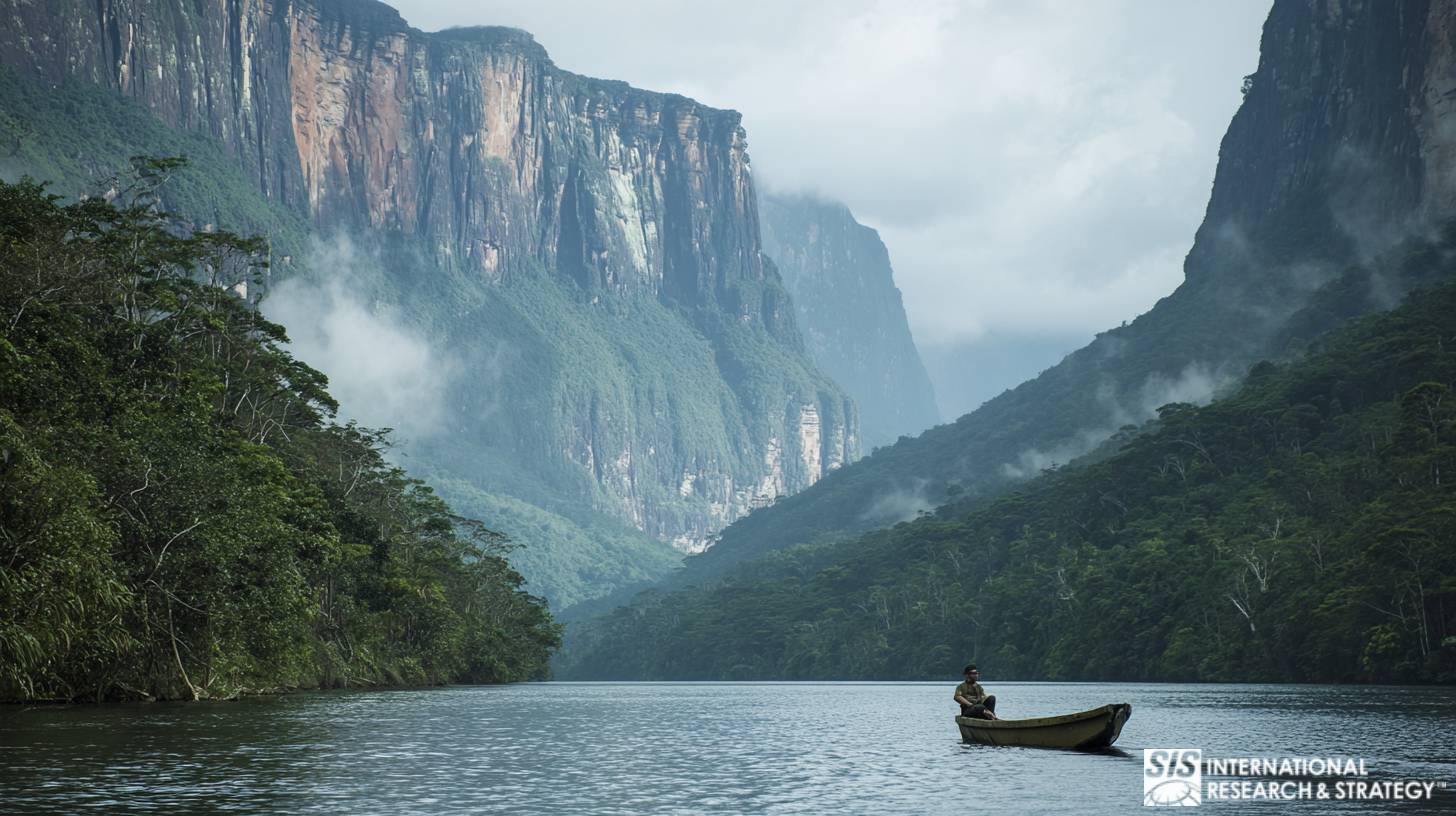
การเลือกตั้งรัฐสภาของเวเนซุเอลาในเดือนธันวาคม ปี 2558 บางคนมองว่าเป็นความหวังสุดท้ายสำหรับประชาชนที่โน้มน้าวตามระบอบประชาธิปไตยให้แสดงความปรารถนาและปรับปรุงประเทศของตนผ่านกล่องลงคะแนน หลังจากนั้นก็เป็นดินแดนที่ไม่จดที่แผนที่ ส่วนใหญ่คิดว่าฝ่ายค้านจะไปได้ดี ซึ่งเป็นข่าวใหญ่หลังจากชาวิสต้าครองอำนาจในการเลือกตั้งมานานหลายปี อย่างไรก็ตาม ฝ่ายค้านไม่ได้เป็นเอกภาพเป็นพิเศษ ดังนั้นจึงอาจไม่มีหุ่นเชิดสักคนเดียวเมื่อควันจางลง ความสามารถของประธานาธิบดีมาดูโรในการปกครองจะขึ้นอยู่กับว่าการเลือกตั้งจะเป็นอย่างไร ดิออสดาโด กาเบลโล ในฐานะหัวหน้ารัฐสภา จะพยายามควบคุมแรงผลักดันที่ฝ่ายค้านสามารถรวบรวมได้ เนื่องจากมีการคาดการณ์ว่าฝ่ายค้านจะถล่มทลาย จึงมีคำถามว่ารัฐบาลจะทำหรือไม่ อนุญาต สิ่งนั้นจะเกิดขึ้น ตามที่ได้กล่าวไปแล้ว ตัวเลขฝ่ายค้าน Leopoldo Lopez และ Maria Corina Machado ถูกจำคุกและ/หรือ ถูกห้ามไม่ให้เข้าร่วมการเลือกตั้ง
Another government advantage is near outright ownership of the media airwaves. The opposition candidates, once they declare, are immediately intimidated by the government and not allowed to have adequate airtime. For the most part they are denigrated, criticized, and are said to be fomenting violence and unrest. Of course, if the Chavistas lose, they won’t control all of the government anymore. In that event, they may attempt to enact laws that limit congressional power. Regardless of the outcome, “According to a leading Venezuelan polling organization, Datanálisis, 84 percent of the population believes that the country is on the wrong path and only 13 percent view Venezuela’s situation positively.”8
เสรีภาพของสื่อมวลชน? คุณภาพของข้อมูล?
เนื่องจาก Nicolás Maduro assumed power in Venezuela, journalistic opinion and information are allowed much less space in available publications. Local news outlets have been bought out by government supporters or have been driven out of business altogether, their resources often drained by ongoing court cases. In many instances they are refused permission to advertise or broadcast. Even worse, journalists are often jailed or fined by a wary government intent on neutralizing negative reports on its conduct and policies. Freedom of the press is not altogether forbidden as it is in North Korea, but those who do publish anti-government content are almost sure to not be publishing much longer.
เพื่อหลีกเลี่ยงมาตรการที่สถาบันของรัฐจำกัดเสรีภาพของสื่อ นักข่าวจำนวนมากจึงใช้อินเทอร์เน็ต ใช้บล็อก และเผยแพร่ผ่านสื่อต่างประเทศ อย่างไรก็ตาม รัฐบาลมาดูโรเริ่มดำเนินการต่อต้านการแสดงออกของโซเชียลมีเดีย โดยจำคุกบุคคล 6 รายจากทวีตที่ส่งผลเสียต่อรัฐบาล แม้จะมีอันตรายและอุปสรรคในการเผยแพร่ความคิดเห็นอย่างเสรี แต่ความเป็นอิสระและการต่อต้านยังคงมีอยู่ในสื่อส่วนใหญ่ ภาวะเศรษฐกิจที่ยากลำบากทำให้นักข่าวจำนวนมากเดินทางออกนอกประเทศ ปล่อยให้นักข่าวต่างประเทศตื่นตัว
The government is unable to crack down on foreign journalists because of the repercussions it would have internationally. No new reporters are coming in, but those already there have been allowed to stay. Ultimately, the government aims to negate local press outlets and mute the foreign journalists with a war of attrition. Social media is a helpful alternative to traditional delivery mediums, but money, resources, and talent are necessary for the production of substantial, informative reporting.
การออกจากเวเนซุเอลา – ต้นทุนของลัทธิชาตินิยม
“In 2007, the Bolivarian government issued a law-decree nationalizing all remaining oil production sites under foreign control and mandating that all oil extraction in Venezuela be undertaken within the framework of joint ventures, in which the state oil company PDVSA retains the majority stake. This move sparked a wave of lawsuits by foreign trans-nationals in international arbitration bodies demanding compensation for expropriated assets. In response, Venezuela withdrew from the ICSID in 2012, citing institutional bias in favor of transnational corporations on the part of the Washington-based body. “13
Where once Venezuela was home to many large multi-national firms, today only a handful remain. It’s difficult to make a profit because labor costs and the prices of goods are predetermined.
บริษัทที่ใหญ่ที่สุดต่างลังเล โดยอาศัยเวลาทางเศรษฐกิจที่ดีขึ้นในอนาคต ในขณะที่บริษัทขนาดเล็กไม่มีความหรูหราในการรอนานขนาดนั้น บริษัทน้ำมันขนาดใหญ่กำลังเผชิญปัญหาทางการเงิน แต่โอกาสที่จะทำกำไรในอนาคตนั้นใหญ่เกินกว่าจะมองข้ามได้
ICSID ซึ่งเป็นศูนย์ระหว่างประเทศเพื่อการระงับข้อพิพาทด้านการลงทุน มีคดีที่ค้างอยู่หลายคดีที่เกี่ยวข้องกับการกล่าวอ้างที่ว่ารัฐบาลเวเนซุเอลาเวนคืนบริษัทต่างๆ ในระหว่างการพยายามโอนสัญชาติ เมื่อเร็วๆ นี้ เอ็กซอนชนะคดี $1.6B ในปี 2557 และกล่าวกันว่าประเทศนี้เป็นหนี้สายการบินหลายพันล้านรายที่ยังคงค้างชำระ โดยรวมแล้ว เวเนซุเอลากลายเป็นสถานที่ที่ยากลำบากในการทำการค้าเพื่อผลประโยชน์ด้านน้ำมันระหว่างประเทศและบริษัทขนาดใหญ่โดยทั่วไป สำหรับผู้ที่จากไปแล้ว ไม่น่าเป็นไปได้ที่พวกเขาจะกลับมาอีกจนกว่าจะมีรัฐบาลใหม่และเปิดกว้างมากขึ้น
ความสำคัญของเวเนซุเอลาต่อเศรษฐกิจปิโตรโลกทั่วโลก
ในช่วงเวลาหนึ่ง เวเนซุเอลาของ Hugo Chavez ส่องสว่างเป็นสัญญาณให้กับประเทศต่างๆ ทั่วโลกที่ปรารถนาที่จะได้รับเอกราชมากขึ้นจากสหรัฐอเมริกา และควบคุมทรัพยากรของตนเอง He was seen as that rare individual with the courage to stand up to the U.S. in defiance, and as a central figurehead in a worldwide alliance of left-leaning, socialistic powers. After world oil prices plummeted, the bottom fell out of Chavez’s plans and his mystique was weakened. นิโคลัส มาดูโร ผู้สืบทอดตำแหน่งต่อจากเขากล่าวสุนทรพจน์ที่ร้อนแรง แต่ก็ส่งผลกระทบอย่างเงียบๆ โปรแกรมเช่น เปโตรคาริเบ, ซึ่งจัดหาน้ำมันให้กับประเทศเวเนซุเอลาและแคริบเบียน สูญเสียการสนับสนุนเมื่อเงินหยุดไหล ปัจจุบันเหลือเพียงไม่กี่ประเทศที่จะยืนหยัดเพื่อเวเนซุเอลาในเวทีโลก
No doubt, Venezuela can still be a major provider of oil. They have the largest reserves in the world, but theirs is a viscous, hard-to-process type of petroleum product that is expensive to refine. With current prices at a nadir, Venezuela’s role as an oil producer has diminished, and its position as a lion of socialism has been undermined, as well. Globally, they are still a top ten producer of oil and they are important in that regard. Presently, there is a glut of oil on the global market, but this will not always be so. In the long-term, the world will need Venezuela’s vast reserves to supply an unquenchable need for petroleum.
Julius Walker นักยุทธศาสตร์ของ UBS สรุปไว้ด้วยวิธีนี้ “เวเนซุเอลายังคงมีความสำคัญต่อตลาดน้ำมันโลก การหยุดผลิตใดๆ ก็ตามจะทำให้ราคาพุ่งสูงขึ้นอย่างมาก การปิดการผลิตใดๆ อันเป็นผลมาจากความไม่สงบทางการเมืองจะส่งผลให้ราคาพุ่งสูงขึ้นอย่างมาก และการขาดแคลนการผลิตโดยรวมจะสร้างความตึงเครียดให้กับตลาดน้ำมันทั่วโลกอย่างรุนแรง”9
น้ำมันคือคำตอบเดียวใช่ไหม?
นอกเหนือจากน้ำมันแล้ว เวเนซุเอลายังมีทรัพยากรธรรมชาติที่อุดมสมบูรณ์ แร่เหล็ก อลูมิเนียม ทอง เพชร และก๊าซธรรมชาติ มีการพยายามกระจายความเสี่ยงในอดีต แต่ท้ายที่สุดแล้วน้ำมันก็เข้าครอบงำ 20ไทย ศตวรรษและต่อจากนั้น จนถึงจุดนี้ น้ำมันมีราคาถูกมากในการผลิตจนความจำเป็นในการทำสิ่งอื่นถือเป็นประเด็นที่น่าสงสัย ยังคงมีศักยภาพอันมหาศาลอยู่ ปล่อยให้เวเนซุเอลาในปัจจุบันทิ้งสิ่งกีดขวางไปสู่ความก้าวหน้า กล่าวคือ ปัญหาด้านทุนและสิทธิในทรัพย์สินที่เป็นอุปสรรคต่อความพยายามในการกระจายความเสี่ยง
Julio Sosa Rodriguez รัฐมนตรีกระทรวงการคลังของเวเนซุเอลาสรุปสถานการณ์ได้ดีในการให้สัมภาษณ์เมื่อเร็วๆ นี้ในกรุงคารากัสว่า "สำหรับคนรุ่นผม นี่จะเป็นครั้งแรกที่เราได้เห็นน้ำมันลดลงต่ำกว่าครึ่งหนึ่งของงบประมาณของประเทศ" สิ่งที่โง่เขลาที่สุดในรอบ 20 ปีที่ผ่านมาคือการไม่กระจายความเสี่ยงทางเศรษฐกิจ”10 อาจต้องใช้เงินลงทุนจำนวนมากจากต่างประเทศในการลงทุนและช่วยเหลือเศรษฐกิจเวเนซุเอลาให้ดำเนินต่อไปได้ หากและเมื่อใดที่เศรษฐกิจนั้นมีเสถียรภาพ โอกาสจะมีอยู่ในหลายภาคส่วนหากได้รับอนุญาตให้เกิดขึ้นจริงและเห็นว่าบรรลุผล
Venezuela’s Relationship with Other Latin American Governments
The left-wing governments of Ecuador, Cuba, Argentina, and Bolivia have historically had alliances with Venezuela. These affiliations are based more upon ideology than on copying Venezuela as an economic model. Latin American ties were especially strong when Chavez ruled and money and oil were flowing. However, relationships have deteriorated noticeably under the Maduro regime.
Brazil pretends to have decent relations with Venezuela, but there is no real respect for Maduro that isn’t based on fear of his power and of losing access to Venezuela’s ready supply of oil. After all, Venezuela used to give money to their allies, but in light of its current economic woes, those days are gone. Some Caribbean nations such as Barbados rely on Venezuela for oil, so they are reticent to speak out against Maduro in any meaningful way.
While the embattled leader is struggling to hold together his frayed alliances, human rights groups are leaning hard on Latin American countries to hold the Venezuelan government accountable for its many transgressions against its political prisoners. Columbia has raised its voice to the issue, but it shares a border with Venezuela and isn’t too anxious to pick a fight. Cuba has long shared left-leaning proclivities with Venezuela, but their recent thawing of relations with the U.S. has placed Maduro in an awkward position given the vitriol and disdain he regularly aims at Washington and Obama.
แล้วรัสเซียและจีนล่ะ?
If Venezuela is a strong ally of Russia and China, the relationship is mostly superficial. Venezuela has offered the two world powers a place to sell their products on preferential terms. The loans they have given are typically based on contractual obligations for the selling of Russian and Chinese products. When times were better, sales were good and everyone was happy, but today the business is winding down. Russia claims continued alliance, but they have trouble dealing with of their own. It is China that has continued to lend to Venezuela, even when getting paid back for these loans seems unlikely.
ตามรายงานของ The Economist “ประธานาธิบดี Nicolás Maduro ประกาศเงินกู้ใหม่ $5 พันล้านจากประเทศจีนในรายการโทรทัศน์รายสัปดาห์ของเขา ซึ่งออกอากาศในวันที่ 1 กันยายน ในการแสดงความยาว 2 ชั่วโมง (“ติดต่อกับมาดูโร”, “En contacto con Maduro”) เขาได้ประกาศสั้นๆ ว่าข้อตกลงดังกล่าวได้รับการลงนามแล้ว ก่อนที่จะแพนกล้องไปที่ภาพการเดินทัพของทหารจีนและคลิปของตัวเองกำลังตีกลองร่วมกับบุคคลสำคัญของจีน . … เนื่องจากเงินกู้จะต้องชำระคืนเป็นน้ำมัน จึงไม่จำเป็นต้องได้รับการอนุมัติจากรัฐสภาเวเนซุเอลา (เนื่องจากจะไม่นับเป็นหนี้อย่างเป็นทางการ)”11
China’s place at the bargaining table is solid and they are not giving the money away for free. The strings are inevitably tied to the provision of a steady supply of oil in the future. Like Russia, China is dealing with its own economic turndown. Venezuela is located far away from China and the cost of refining the plentiful but viscous oil supply will be very expensive. The Chinese have made similar deals in Africa, leveraging present-day loans for long-term provisions of much-needed oil.
พันธมิตรระหว่างประเทศและฝ่ายตรงข้าม
ความเป็นพันธมิตรและมิตรภาพที่เกี่ยวข้องกับเวเนซุเอลาและประเทศอื่นๆ มักมีพื้นฐานมาจากน้ำมัน เงิน และการเมืองฝ่ายซ้ายเสมอ สำหรับอิหร่าน รัสเซีย ซีเรีย และจีน สมาคมใดก็ตามที่มีลักษณะเป็นเงินตราล้วนๆ อุดมการณ์ไม่ใช่ประเด็นสำคัญในการพิจารณา นอกจากนี้ ประเทศประชาธิปไตยใดๆ แทบจะเป็นศัตรูกับรัฐบาลเวเนซุเอลาอย่างแน่นอน
คิวบาเป็นพันธมิตรทางอุดมการณ์อันยาวนานของเวเนซุเอลา อย่างไรก็ตาม การกระชับความสัมพันธ์กับสหรัฐฯ เมื่อเร็ว ๆ นี้ได้สร้างปัญหาให้กับรัฐบาลมาดูโร เวเนซุเอลาและคิวบายืนหยัดเคียงข้างกันมานานหลายปี โดยต่อต้านความชั่วร้ายของอเมริกา การพลิกผัน 180 องศาของคิวบาไม่เพียงแต่ทำให้มาดูโรสับสนเท่านั้น แต่ยังทำให้เกิดคำถามถึงความชอบธรรมของเขาด้วย
Brazil’s friendship with Venezuela is of great importance to the Maduro government as Brazil is in good economic shape. Elsewhere, Algeria, Palestine, and the Assad regime in Syria have shown an alliance to the Venezuelan government. Some believe that Maduro’s regime has been somehow complicit in helping Iran to conceal its ongoing nuclear development program.
ในส่วนของศัตรู ไม่ต้องสงสัยเลยว่าสหรัฐฯ จะเป็นที่ 1 มาดูโรอ้างอย่างยืนกรานว่าสหรัฐฯ พยายามลอบสังหารเขา แม้กระทั่งอ้างถึงรองประธานาธิบดีโจ ไบเดน ในการยืนยันเหล่านั้น ประธานาธิบดีโอบามา พยายามอย่างเต็มที่ที่จะไม่ให้เหตุผลแก่เวเนซุเอลาในการแท็กสหรัฐฯ เป็นจักรวรรดินิยม กำลังพยายามยุติความสัมพันธ์กับระบอบมาดูโร ในด้านอื่นๆ สเปนสามารถเห็นได้ว่าต่อต้านเวเนซุเอลาในเชิงอุดมการณ์ และโคลัมเบียได้ยุยงให้เกิดความโกรธเกรี้ยวของมาดูโรอย่างแน่นอน
การเจรจาใหม่กับสหรัฐฯ?
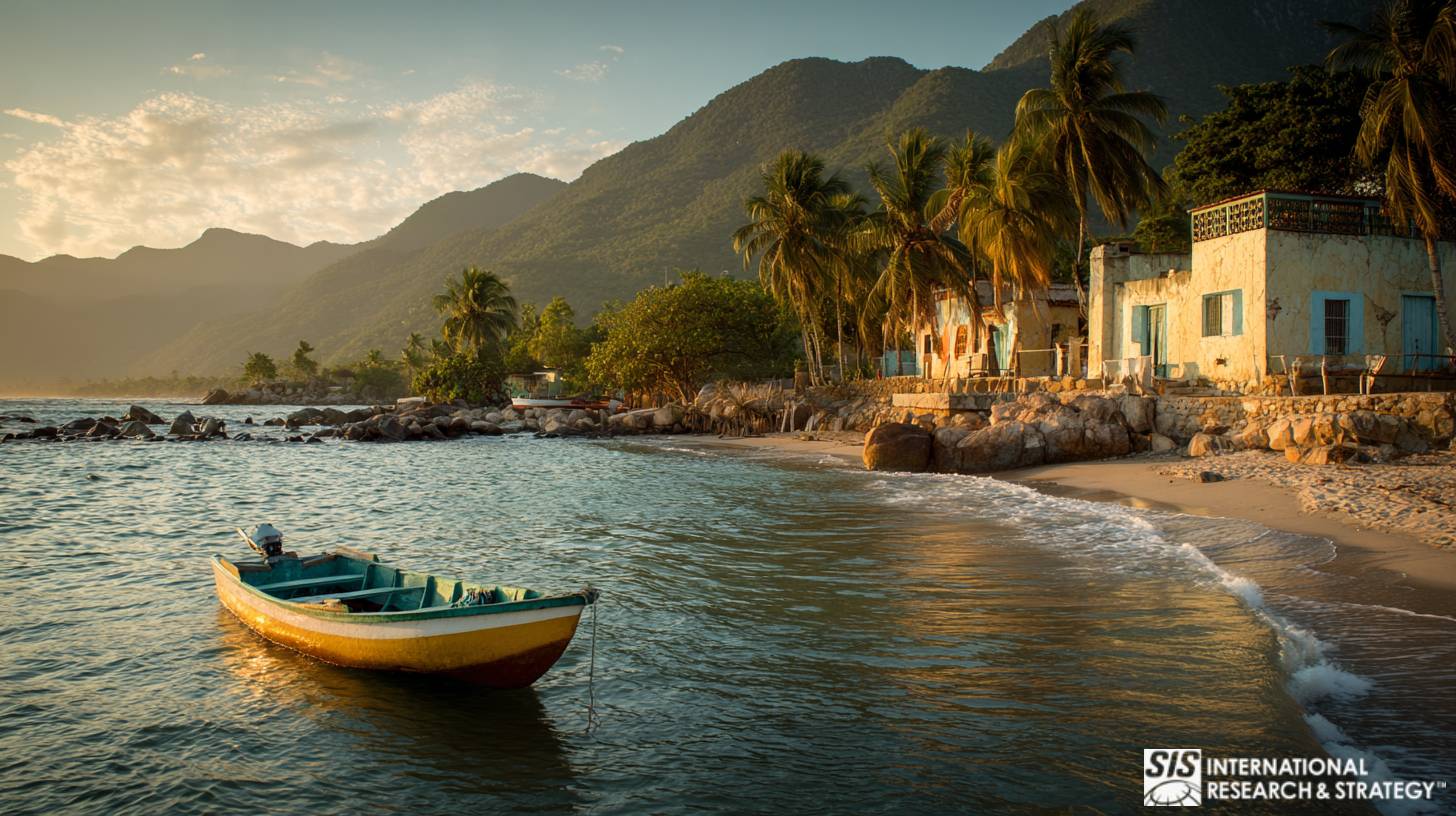
สำหรับ Nicolás Maduro การเจรจากับรัฐบาลสหรัฐฯ ถือเป็นข้อเสนอที่เสี่ยงที่สุด ท้ายที่สุดแล้ว เขาและบรรพบุรุษของเขา ฮูโก ชาเวซ ผู้ล่วงลับ ได้ใช้เวลาหลายปีในการดูหมิ่นและพ่นพิษต่อต้านทุนนิยมใส่เพื่อนบ้านที่ถูกประณามทางตอนเหนือของพวกเขา ที่ถูกกล่าวว่าการเจรจาล่าสุดระหว่างทั้งสองประเทศยังคงดำเนินอยู่อย่างแน่นอน ตามที่สำนักข่าว Reuters รายงานเมื่อเร็วๆ นี้…
“สหรัฐอเมริกาและ เวเนซุเอลา ได้เริ่มการเจรจาที่กว้างขวางที่สุดในรอบหลายปีด้วยความพยายามที่จะปรับปรุงความสัมพันธ์ที่เผ็ดร้อนของพวกเขา ตามการระบุของเจ้าหน้าที่บริหารระดับสูงของสหรัฐฯ การทูตแบบเงียบๆ ซึ่งไม่เคยมีการรายงานมาก่อน ถือเป็นสัญญาณบ่งชี้ว่าสหรัฐฯ ยอมปล่อยตัวกับคอมมิวนิสต์คิวบา อาจกำลังช่วยปรับโครงสร้างความสัมพันธ์ในละตินอเมริกาที่มีปัญหาอีกครั้งหนึ่ง เจ้าหน้าที่ผู้มีความรู้โดยตรงเกี่ยวกับการเจรจาระดับสูง เตือนว่ากระบวนการนี้ยังอยู่ในระยะเริ่มต้น ความพยายามของรัฐบาลต่อต้านวอชิงตันที่กระตือรือร้นที่สุดในละตินอเมริกาและผู้จัดหาน้ำมันรายใหญ่ของสหรัฐฯ ในการปรับปรุงความสัมพันธ์เกิดขึ้นในขณะที่ประธานาธิบดีนิโคลัส มาดูโร ต่อสู้กับเศรษฐกิจที่เสื่อมถอยซึ่งนำโดยรัฐ ซึ่งถูกทิ้งให้โดดเดี่ยวมากขึ้นโดยความสัมพันธ์อันอบอุ่นระหว่างสหรัฐฯ กับพันธมิตรใกล้ชิดของคิวบา"14
For the U.S, having a failed state in Venezuela is not a good thing. It creates increased security issues and opens the door to escalation in drug trafficking activities. The DEA has been investigating high-ranking Venezuelan officials for believed involvement in drug-related criminality. To mollify the U.S., some arrests have been made in relation to the investigations. One possible scenario sees the U.S. providing financial aid to Venezuela, though some doubt this will happen. In the pursuit of U.S. dollars, it’s reported that the Venezuelan Head of the Assemblage, Diosdado Cabello recently met in Haiti with U.S. Assistant Secretary of State Shannon. In the meantime, Maduro continues to vent on TV against the U.S., blaming it for most of Venezuela’s ills.
ภัยพิบัติอยู่ข้างหน้าไหม?
Despite loans from China to keep it economically solvent and ongoing relations with the U.S. portending possible relief for Venezuelans, day-to-day life is still miserable for millions. Long lines of poor people stand in line for food and supplies. Constant shortages provide unending aggravation. Crime threatens the very lives of a vulnerable population. Many say that short of a quick and demonstrative intervention of some type, Venezuela may soon be heading off the cliff. This makes the coming elections even more important. With external debts mounting and oil prices remaining low month after month, conditions are perfect for a cataclysm of the highest order.
จากข้อมูลของ Barclays “เวเนซุเอลากำลังเผชิญกับวิกฤตเศรษฐกิจที่ลึกที่สุดในประวัติศาสตร์ โดยคาดว่าผลผลิตจะหดตัว 9.1 เปอร์เซ็นต์ในปีนี้ เศรษฐกิจจะหดตัวถึงร้อยละ 16.5 ระหว่างปี 2557 ถึง 2559 ในขณะที่อัตราเงินเฟ้อในช่วงเวลาดังกล่าวจะเกินร้อยละ 1,000”15
The middle-class continues to protest, but unless they are joined by the poor, creating numbers too big to be ignored, little will change. True, petrol bombs, thrown stones, unrest, and violence can lead to an awareness that might affect real change, but without organization and leadership, such protests stand little chance of uniting huge amounts of people and of being effective. With Venezuelan citizens so hungry and angry, it’s not hard to see why Chavez-worship is on the wane. An epochal event might be necessary to usher in a new era for the nation and to reinvigorate its beleaguered markets.
ในระยะยาว…
Most experts agree that things will get worse in Venezuela before they get better. Even if oil prices rise, the best that might be expected is a few more years of “kicking the can down the road.” The country’s debts are astronomical. There isn’t enough food. Problems are myriad to the point that it may take decades for Venezuela to sift through the wreckage wrought by Chavez’s experiment, and by the fickle
ลักษณะของตลาดเชื้อเพลิงฟอสซิล คงต้องรอดูกันต่อไปว่าการล่มสลายของ Chavismo ที่คาดการณ์ไว้จะได้รับการแก้ไขอย่างรวดเร็ว หรือจะต้องต่อสู้ดิ้นรนอย่างยาวนานและเจ็บปวดจากความมืดมิด ไม่ว่าการลงมติจะเป็นอย่างไร จะต้องเกี่ยวข้องกับอาณัติของประชาชน ไม่ใช่เจตจำนงของผู้มีอำนาจรุ่นเก่า
Will a moderate such as Capriles provide the bridge to unite right and left in Venezuela? Can Chinese loans stave off default? China may well be tiring of waiting for its return on investment to pay dividends. On the upside, Venezuela is sitting on a sea of oil, and there is no doubt that eventually, the world will need it. Oil prices are bound to rise and when that happens, Venezuela will be well-positioned to reap the benefits. Investors, meanwhile, are in a wait-and-see mode.
จาก LFPress.com; “เศรษฐกิจจะยังคงได้รับผลกระทบต่อไป และไม่มีเจตจำนงทางการเมืองในรัฐบาลที่จะใช้มาตรการที่เข้มงวดเพื่อจัดการกับอัตราเงินเฟ้อที่เพิ่มขึ้นอย่างรวดเร็วและสภาพแวดล้อมทางการคลังที่ถดถอย ในความเป็นจริง ความไม่พอใจของสาธารณชนที่กำลังเกิดขึ้นในขณะนี้ทำให้มาดูโรมีโอกาสน้อยลงที่จะดำเนินการการปฏิรูปอันเจ็บปวดที่อาจนำไปสู่การประท้วงที่ฟื้นคืนชีพ นั่นหมายความว่าเราจะได้เห็นความไม่พอใจทางสังคมรอบต่อไป”16
เดินหน้าแบบไหน?
As improbable as it sounds, many feel the best course of action for Venezuela to take regarding its future would be to form a transitional government with representation from all sides, in the interest of national solidarity. This would include the opposition, the Chavista government, and the military. Some feel that painful austerity measures presented by a unified front are needed in order to stabilize the economy. The IMF could provide emergency funding. The people will decide who they want to lead through fair elections monitored by the international community. The ultimate goal would be to achieve some type of peaceful democratic transition.
การเยียวยาอื่นๆ ที่ได้รับการเสนอแนะ ได้แก่ การลดค่าเงินของอัตราแลกเปลี่ยนปัจจุบันเพื่อจูงใจบริษัทต่างๆ ให้กลับมายังเวเนซุเอลา จากมุมมองของอุตสาหกรรมน้ำมันและการลงทุนระหว่างประเทศ การควบคุมของฝ่ายค้านจะดีขึ้น เนื่องจากมีความไม่ไว้วางใจอย่างมากต่อมาดูโรและนโยบายของเขา ในปัจจุบัน คงเป็นเรื่องยากสำหรับรัฐบาลมาดูโรที่จะซ่อมแซมรั้ว เนื่องจากเศรษฐกิจถดถอยลง เรื่องนี้ว่ากันว่า แม้จะล้มเหลว แต่หลายคนยังคงสนับสนุน Chavismo และให้ความหวังที่จะรื้อฟื้นการปฏิวัติ
Maduro still has four years left to rule, but it’s hard to imagine him surviving that long as badly as things have been. Should the urban poor mobilize and show their extreme discontent in the streets, Maduro’s tenure could be shortened. In an interesting article in the Huffington Post recently, this assessment was published …
“วิธีแก้ปัญหาที่เป็นไปได้คือการหาผู้นำคนใหม่ ผู้นำที่อาจมาจากสลัมใน Petare, San Agustín หรือ 23 de Enero; ซึ่งสามารถดึงดูดคนจำนวนมากที่ไม่พอใจได้ ชาวิสต้า ที่ไม่ไว้วางใจผู้นำฝ่ายค้านคนปัจจุบัน การเกิดขึ้นของตัวเลขดังกล่าวอาจแสดงถึงจุดร่วมระหว่างกัน ชาวิสต้า และฝ่ายค้านและอาจส่งสัญญาณถึงจุดเปลี่ยนในวิกฤตการเมืองของเวเนซุเอลาได้เป็นอย่างดี”17
สิ่งที่ชาวเวเนซุเอลาต้องการจริงๆ
Most experts feel that the wants of the Venezuelan people are actually not so complex or impossible to satisfy. Like everyone, they wish for the basics; food, shelter, and clothing. They want to be able to eat and have a minimal amount of purchasing power. As one insider put it, “they want a peaceful nation with plenty to eat, drink, decent beaches, and they will be happy.” Venezuelans also want to be heard, to have a voice, a vote, and honest representation. In addition, they insist on a decent education for their children.
ดังที่เป็นอยู่ ชนชั้นกลางกำลังดึงเดิมพันและจากไปโดยไม่มีโอกาสที่จะเติบโต คนจนแทบไม่มีความหวังเลยจริงๆ ว่าการบรรเทาทุกข์ในปัจจุบันจะเกิดขึ้น น่าเสียดายที่เวเนซุเอลาเป็นประเทศที่มีการแบ่งขั้ว ความต้องการและความปรารถนาของผู้ที่สนับสนุนฝ่ายค้านและ Chavistas แตกต่างกันอย่างมาก หลายคนปรารถนาที่จะเห็นการสิ้นสุดของนโยบาย Chavismo ในขณะที่คนจนและไม่ได้รับสิทธิ์ต้องการการใช้จ่ายทางสังคมต่อไปและนโยบายที่เอนเอียงไปทางซ้าย
นอกจากนี้ ผู้คนต้องการรู้สึกปลอดภัยบนท้องถนนและในบ้าน พวกเขากลัวเพราะอาชญากรรมรุนแรงยังคงบานปลาย หลายๆ คนก็หิวเช่นกัน และเบื่อกับการต่อแถวอาหารและสิ่งของต่างๆ ความโกรธของพวกเขาเพิ่มขึ้น มันเป็นฟิวส์ที่ติดไฟซึ่งลุกไหม้ใกล้เข้ามามากขึ้นเรื่อย ๆ กับการระเบิดของสัดส่วนความหายนะ ในรูปแบบใดที่อาจใช้ไม่ชัดเจน คงต้องรอดูกันต่อไปว่าการระเบิดนั้นสามารถกลบเกลื่อนได้อย่างรวดเร็ว ก่อนที่จะสายเกินไปหรือไม่ อนาคตดูมีความหวังสำหรับเวเนซุเอลาและประชาชน มันคือ ปัจจุบัน ซึ่งมีความผันผวนและเป็นปัญหาอย่างมาก
สถานที่ตั้งโรงงานของเราในนิวยอร์ก
11 E 22nd Street, ชั้น 2, นิวยอร์ก, NY 10010 T: +1(212) 505-6805
เกี่ยวกับ เอสไอเอส อินเตอร์เนชั่นแนล
เอสไอเอส อินเตอร์เนชั่นแนล เสนอการวิจัยเชิงปริมาณ เชิงคุณภาพ และเชิงกลยุทธ์ เราให้ข้อมูล เครื่องมือ กลยุทธ์ รายงาน และข้อมูลเชิงลึกเพื่อการตัดสินใจ นอกจากนี้เรายังดำเนินการสัมภาษณ์ การสำรวจ การสนทนากลุ่ม และวิธีการและแนวทางการวิจัยตลาดอื่นๆ ติดต่อเรา สำหรับโครงการวิจัยการตลาดครั้งต่อไปของคุณ

